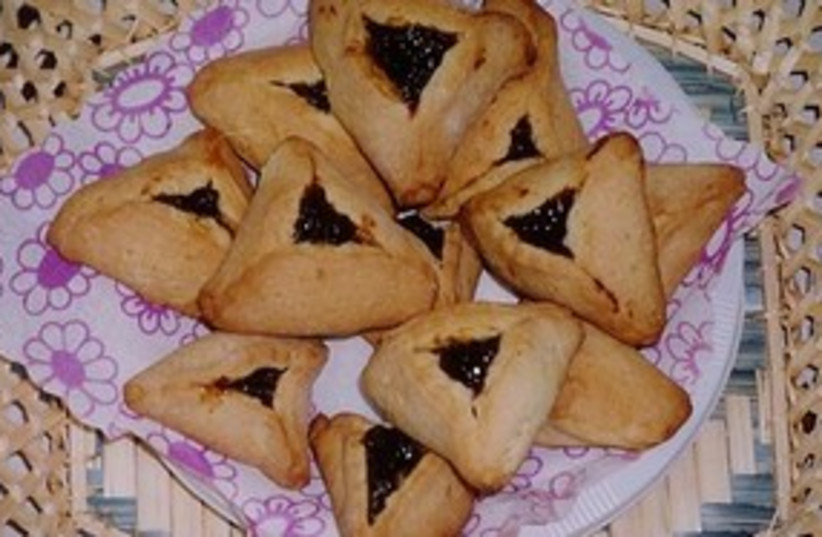The classic hamantaschen cookie for Purim is getting an updated twist this year: Young Israeli students living in Warsaw have decided to bake the popular Jewish triangle cookie with a new and funny name, “Putintaschen,” as the cookie of Russian President Vladimir Putin.
A hamantaschen means Haman pockets in Yiddish. It is also sometimes described as Haman’s ear. It is an Ashkenazi Jewish triangular-filled pocket pastry associated with Purim. The name refers to Haman, the villain in the Purim story.
Gefen Levy, a medical student at a local Warsaw-based university, grew up in Ma’aleh Adumin, near Jerusalem. Lately, she has been volunteering with the From the Depths organization and hosting families of Jewish refugees in her small apartment.
On Sunday, Levy and her friends baked what they now call Putintaschens.
“I’ve been learning a bit less lately because of the terrible situation,” she told The Jerusalem Post. “Even though I’m a college student, I donated as much money as I could. My friends and I also volunteered with the doctors who came from Israel.”

The hamantaschens she made are based on her grandmother’s recipe from Morocco. She made them with poppy seeds and chocolate.
From the Depths founder Jonny Daniels joined her in the baking process.
“We will reach everyone with our Putintaschens and gifts for the needy,” he told the Post.
“So many organizations do sacred work on the ground in Poland and other countries,” Daniels said. “Therefore, we are baking these hamantaschens for the refugees of Ukraine to make them smile during this difficult time, but also to empower the organizations, such as ours, who are working with the Jewish refugees.”
“This Purim, we understood that as Jews, we will always be in difficult situations,” he said. “But the holidays are what connect us to our past and to each other. As soon as we started thinking about hamantaschens, I looked at the sad refugees around me, and I realized how we need to name them after Putin’s ears.”
